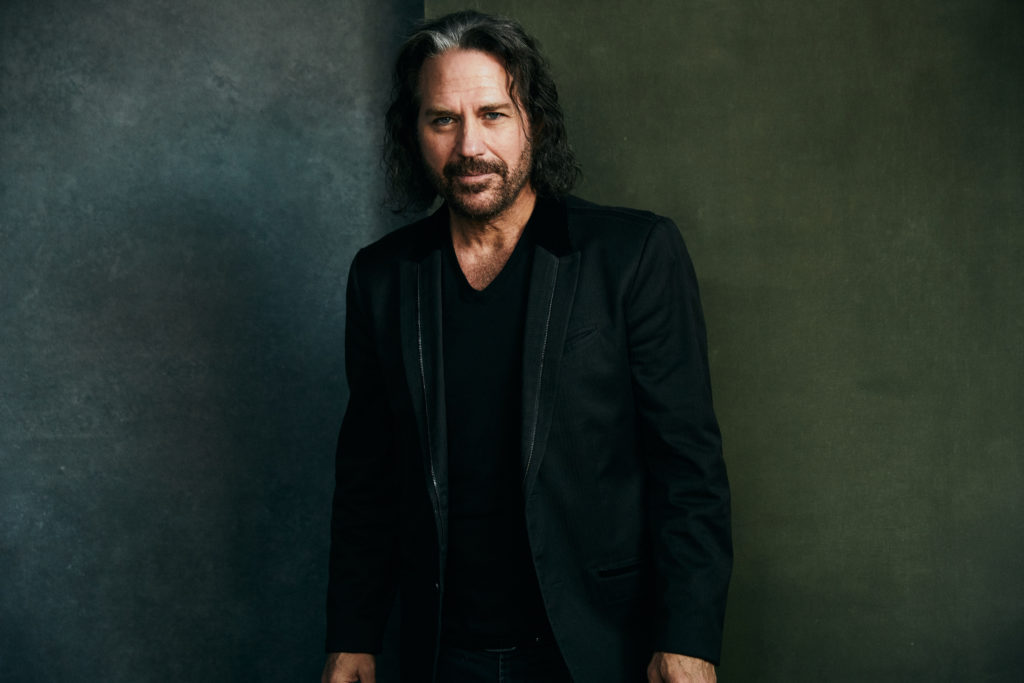
In celebration of 91Classical’s Local Composers Month, we posed six questions to some of Nashville’s classical music creators. This week, check in with Kip Winger. After finding tremendous success with his rock band Winger, Kip has made a name for himself as a classical composer. And he says the two genres have more in common than you may think.
How would you describe your compositional style, and who are your biggest influences?
Somewhere in the realm of post-romanticism meets early modernism with a kick. I come from a rock band and have tried to bring that experience with me in my compositions.
This list of influences is constantly changing but I’d have to say of the deceased composers, Arthur Honegger. He is my go-to composer when I want to dig myself out of a hole. His music makes perfect sense to me when I look at his scores.
Beyond that, there are several big influences, and the influence is really just the feeling in their music, I haven’t necessarily studied their scores, including: Ravel, Stravinsky, Górecki, Vaughan Williams, Ginastera, Penderecki, Shostakovich.
Living composers include: Danielpour, Rouse, Higdon, Daugherty, Kurek; two of whom I studied with.
Which composer do you wish was better known?
Honegger and Ginastera, there is so much in their music that is overlooked in my opinion. You rarely see their music programmed. It’s unfortunate.
Before the pandemic, your Symphony No. 1 was set to have its world premiere with the Nashville Symphony. Can you give us a sense of that work, what inspired it, and how it was to write your first symphony?
I’ve been extremely lucky to be accepted in the classical world. Nashville commissioned this piece and Giancarlo Guerrero was the one who suggested I write my first symphony. I may never have attempted it. It took about 18 months to complete. I could only work on and off with as much touring as I do. The music was completed Jan 4th, 2020. I’d love to talk about the subject when it gets closer to the new premiere date.
There’s a lot happening this year. In addition to the pandemic disrupting live performances, we’ve also had widespread protests against racial injustice… and it’s an election year. How have the events of 2020 so far influenced you as a composer?
They haven’t. Other than I have a lot more time to compose. I’m not a political type of composer. I’m fairly private with my political opinions, and as far as racial injustice goes, I can only say how sad it is to see any of this going on in 2020.
Heavy metal and classical music seem very different, but you’ve been open about how much they’ve intermingled in your career. What’s the most helpful thing you taken from your time with Winger into your work as a classical composer?
Bruce Lee once said: “Before I learned the art, a punch was just a punch, and a kick, just a kick. After I learned the art, a punch was no longer a punch, a kick no longer a kick. Now that I understand the art, a punch is just a punch and a kick is just a kick.”
When I used to dream about writing symphonic music I felt totally intimidated. How could I cross that terrain? I didn’t want to be another “rock guy” saying they write classical. I wanted to do it on their terms. Learn the techniques that have developed over the last few hundred years and speak that language with authority. So at 35 I set out to find great composition and theory instructors. I felt that I had to abandon my past to be able to totally embrace the future.
The learning curve was difficult, mostly because I wasn’t around a classical music environment. I had to create that myself through listening a LOT and writing a LOT. After about 10 years, under the instruction of Michael Kurek, I wrote my first publishable piece “Ghosts” and luckily had a lot of success with it. But it wasn’t until 2014 when I was studying with Danielpour, and in Vienna for one of his piano concerto premieres, when the light went on and I realized how a “kick was just a kick”. After that, it was just finding a way back to who “I” am and what I want to say as a classical composer. In the end, Heavy Metal and Classical are very similar, you just have to know form and orchestration, along with developing a unique sense of harmony to create in whichever genre you want to express yourself in.
What’s next on your compositional bucket list?
I’m working on a violin concerto as well as a new Winger album; feeling lucky to be so inspired. As far as bucket list: At some point I will definitely want to write a Piano Concerto.